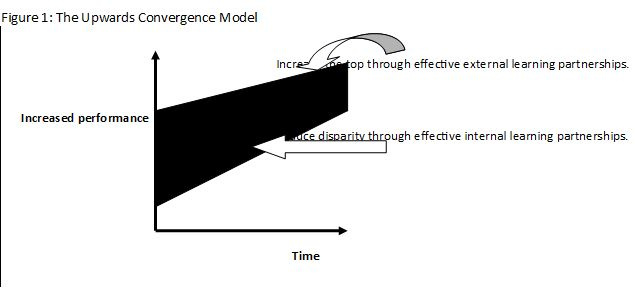
Powerful tool
Founded by practitioners in 2011 to build on the success of the London Challenge, Challenge Partners has in the last decade facilitated over 2000 school peer Quality Assurance Reviews (QA Reviews) involving thousands of school leaders. In 2018/19 we adapted this tried-and-tested approach to develop a model of Trust Peer Review (TPR), which would evaluate trusts’ approaches to improvement across a group of schools. In doing so, we sought to replicate the ‘multiple gains’ identified in an independent evaluation of our school QA Reviews.i
An NFER review of our TPR pilot confirmed the process as a powerful tool for the professional development of trust leaders, as well as for the continuous improvement of school trusts.ii The programme is also enabling us to gather evidence of the features of effective multi-school improvement to help guide trust leaders as they develop their approaches.
The foundations upon which peer review is built
Challenge Partners has used peer review for a decade to further its goal of ‘upwards convergence’ in school performance in order to improve life chances for children and young people - particularly those facing disadvantage (in whatever form that takes). The upwards convergence model was established by my predecessor and Challenge Partners’ founding CEO, Professor Sir George Berwick, as he developed the original teaching schools concept.iii
Upwards convergence “is about raising the performance of the highest achieving [schools] while reducing the gap between them and the lower achieving. It applies equally to student achievement and teacher quality”iv (see Figure 1: The Upwards Convergence Model). Our Trust Peer Review and facilitation of hard-edged collaboration between school trusts seek to achieve upwards convergence at trust level.
